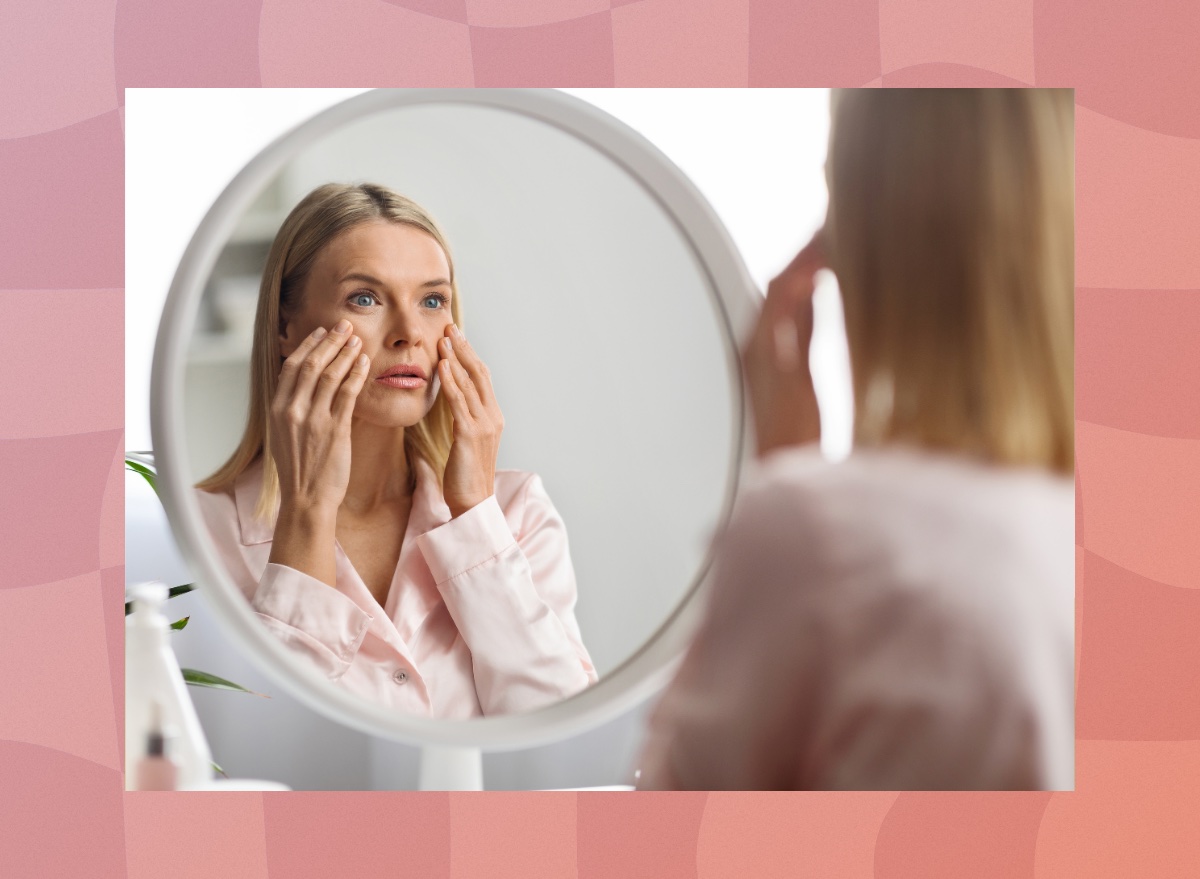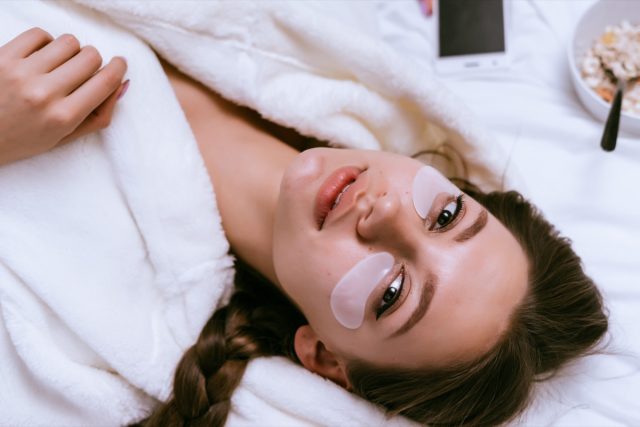Do You Have ‘Cortisol Face’? Here’s How To Get Rid of It, According to Experts

If your face appears puffy and you’ve recently been under a lot of stress, there’s a good possibility you’ve stumbled upon a term TikTokers call “cortisol face.” There’s a lot more to the story, however, so we spoke with experts to see what they have to say about “cortisol face” and whether or not it’s something to be concerned about.
According to experts, cortisol face is not a medical diagnosis but rather a term people are using for facial puffiness that’s gaining traction on social media. “‘Cortisol face’ [is described by TikTokers as] the puffy appearance of the facial area in response to elevated cortisol levels,” explains Thompson Maesaka, clinician and owner of a neurologic rehab clinic, The Neural Connection.
Short-Term Stress Likely Isn’t To Blame for Facial Puffiness
Although high cortisol levels can indeed cause facial swelling, they are most likely not the culprit of a puffy face; short-term stress isn’t to blame, either, as social media portrays. It’s more probable something else is going on behind the scenes, such as allergies, consuming too much salt, or sleep habits.
That being said, “moon face,” aka “moon facies,” is an actual medical term that Maesaka tells us “describes the facial appearance of a person with actual pathology that requires prolonged corticosteroid use or diseases that produce excessive cortisol like Cushing’s Syndrome.”
Dr. Brynna Connor, a board-certified family medicine physician specializing in anti-aging and regenerative medicine, and the Healthcare Ambassador for NorthWestPharmacy.com, adds, “[Moon facies] causes the shape of the face to become rounder, resembling a moon. Moon facies can occur due to many factors such as hormonal changes, weight gain, using a steroid medication, such as prednisone, for an extended time, or by medical conditions … [It] presents when there is a buildup of fat or fluid deposits along the side of one’s skull and/or swelling along the jawline (sometimes these can present in combination with one another).”
If you’re concerned about facial puffiness, don’t turn to social media to get to the bottom of it. The first wise step is to speak with your physician to make an accurate diagnosis.
How Can You Address Facial Puffiness?

If you have facial puffiness that is not caused by excess cortisol levels, there are methods you can use to help reduce it. Maesaka suggests taking the following steps:
- Try a cold face mask.
- Perform a sinus massage. “Sometimes, sinus inflammation can trigger an allergic response, leading to mucus production and an inflamed appearance,” Maesaka tells us.
- Test out facial creams. “[They can] tighten the face [and] temporarily reduce puffiness,” says Maesaka.
- Decrease your consumption of alcohol.
- Address any allergies.
- Consume plenty of anti-inflammatory foods.
- Add magnesium supplements to your routine. “This helps balance sodium levels,” he explains.









